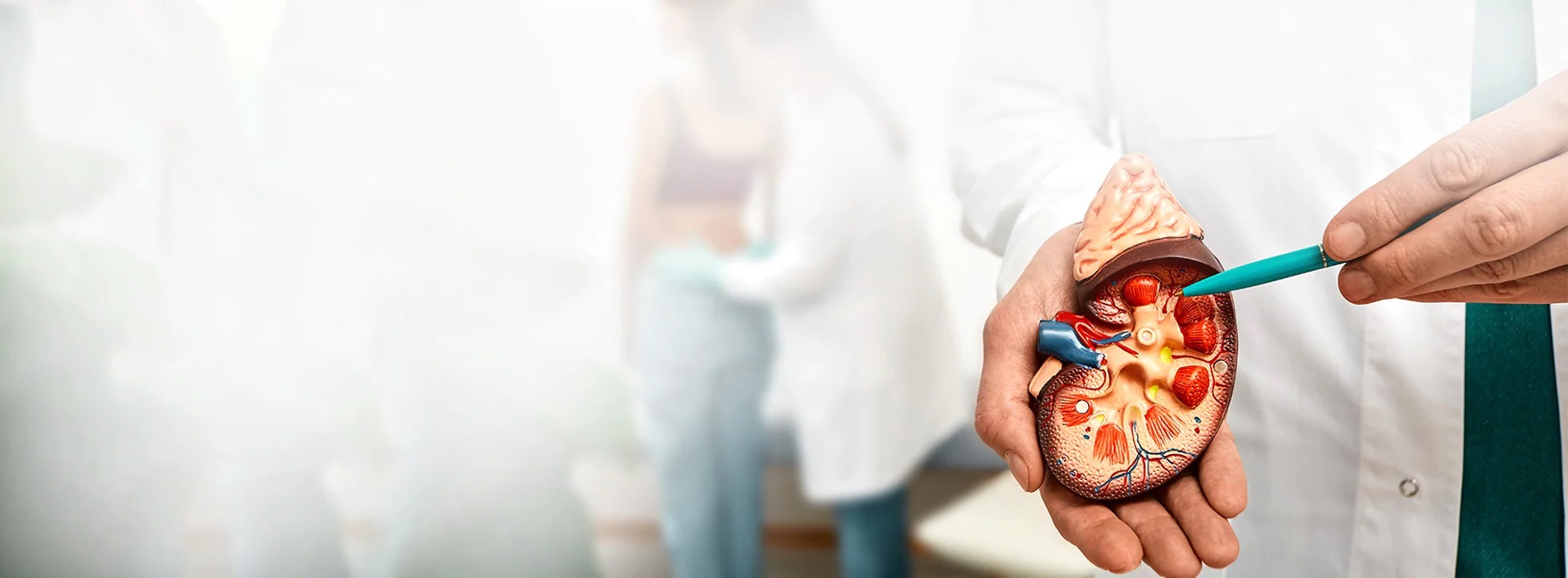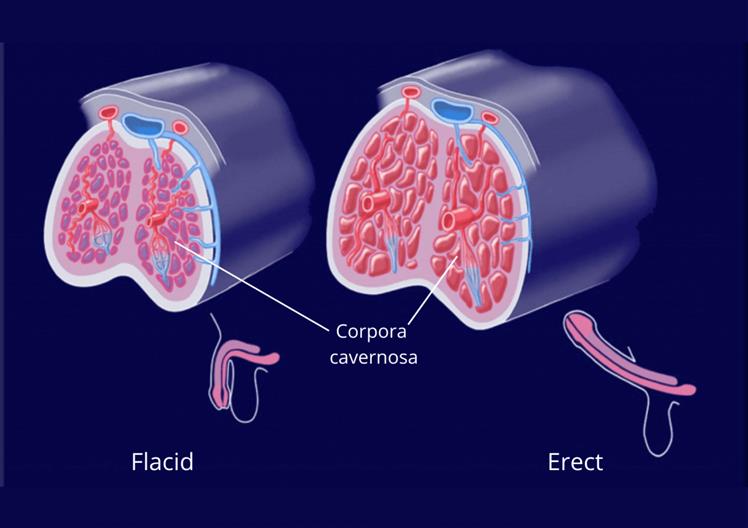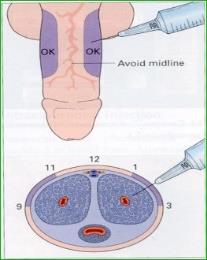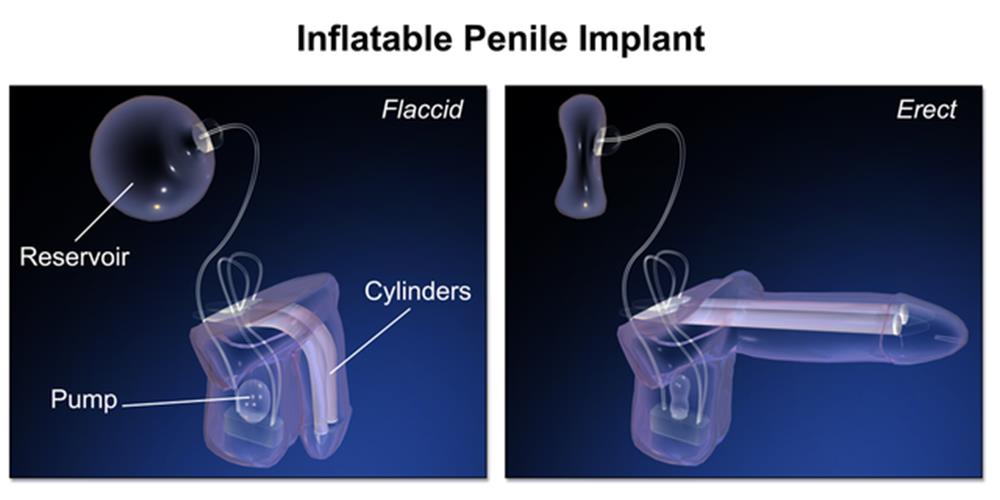Now available at Breach Candy Hospital on Wednesdays 07:00 pm to 08:00 pm


Dr. Dilip Raja
Urologist & Andrologist
Erectile Dysfunction / Impotence
Impotence Inability to achieve and maintain an erection sufficient for vaginal penetration to the mutual satisfaction for both the partners
Get in touch with us today
Impotence is also described as Erectile Dysfunction (ED) and is separate from other disorders like:
- Desire Disorder – Lack of Desire or Loss of Libido
- Erectile dysfunction / Intromission
- Ejaculatory Disorder – Early or Delayed
- Orgasmic Disorder – Presence or Absence
Presentation Of Erectile Dysfunction ( ED)
- Consistently unable to achieve an erection
- Erections are not firm enough to allow vaginal penetration
- Erections have the necessary firmness, but only for a brief period
- Erection loses its firmness upon penetration
- Difficulty in penetration
- Non Consummation of Marriage

Classifications of Erectile Dysfunction (ED)
- Primary impotence: means inability to obtain erection throughout one’s life ever since its adolescence. It is generally related to deep seated psychiatric problem.
- Secondary impotence: means loss of ability to obtain normal erection that was present at one time in one’s life.
Most men will experience occasional impotence, usually resulting from stress, tiredness, anxiety or excessive alcohol or other drug consumption. Worrying about impotence may then set the scene for a more persistent problem due to “fear of failure” known as performance anxiety.
Causes of Erectile Dysfunction (ED)
The cause may be physical or psychological. For most men the cause is both physical and psychological.
- Physical Problems
- Psychological Problems
- Lifestyle
- Drug Induced
Causes of Erectile Dysfunction (ED) – Physical
- Diabetes
- High cholesterol
- Post prostate cancer
- Heart disease
- Alcohol or other drug use
- Some prescribed drugs
- High blood pressure
- Disease of the liver and kidney
- Surgery to the bladder, prostate gland, lower bowel and spine
- Poor blood flow to the penis resulting from blocked arteries
Causes of Erectile Dysfunction (ED) – Psychological
- Anxiety or stress
- Anxiety about sexual performance or sexual identity
- Fear of sexual contact (from issues such as pregnancy or HIV/Sexually Transmitted Diseases)
- Psychological trauma or abuse
- Sexual problems with partner
- Sexual boredom
- Depression
- Lack of communication in the relationship or other relationship issues
- Grief or the effects of illness of self or family member
Symptoms
Occasional episodes of Erectile Dysfunction, is common and does not mean there will be persistent problems in the future. However, older the man greater the sexual stimulation required for a good sustainable erection.
It is quite common to feel embarrassed when an individual discusses the sexual dysfunction for the first time. The Andrologist will commonly ask few basic questions about the general health and sexual life in particular like frequency of intercourse, desire to have sex, quality of erection – hardness, rigidity and sustainability, ability to penetrate and habits of ejaculation. History of masturbation will be important. Your Andrologist will enquire about your early morning erections, its frequency and quality. One should better make your doctor aware of medicines that one is taking for ED or any other illness.
Sexual Education
Common belief is that sex is natural and it’s not true. Some men experience impotence because of lack of sexual education. In other words, they do not know what to do. Usually, once the man is given correct sexual information and any concerns have been discussed then this difficulty is overcome.
Some couples do not have time for sex due to modern lifestyle and work schedules. Having psychological problems with sex does not mean that there is anything wrong with your mental health. Urologist & Andrologist can assist you in the sex therapy. Andrologist can tailor a set of exercises or correct misinformation to assist you and prescribe medicines after proper evaluating one’s condition.
Physical Examination
A physical examination includes taking the blood pressure and checking the pulses in the legs – an indicator of how healthy the circulation is. The penis and scrotum will be examined.
Investigations – one may request blood tests to look for medical problems, such as anaemia, diabetes, high cholesterol, or hormone abnormalities which might be contributory factor for erectile dysfunction. The Andrologist may also perform some office test to evaluate one’s erection and distinguish between physical and psychological erectile dysfunction.
Treatment
Impotence is treatable in all age groups, and awareness of this fact has been growing. More men have been seeking help and returning to near-normal sexual activity because of improved, successful treatments for impotence. The simplest treatments are “talking” therapies or counselling and education, Lifestyle changes, medical line of treatment failing which surgical treatment will also be available.
Treatment options for erectile dysfunction can be divided into four broad categories: –
- Devices
- Drugs
- Counselling
- Surgical
Physical Problems
There are many physical causes for temporary or chronic impotence such as,
- Problems with the blood supply to the penis
- Side effect of medicines and drugs
- Disorders of the nervous system
- Hormonal disorders
- Other complex or multisystemic diseases
Erection takes place when the arteries of the penis carry blood and engorge the spongy erectile bodies called corpora cavernosa.
Medicines / Drug Induced
Medications to treat chronic diseases such as diabetes mellitus, high cholesterol, high blood pressure, renal failure and heart disease destruct of the contractile walls of the veins or provoke hardening, narrowing or blockages of the arteries leading to the penis. These medications prevent sufficient blood from getting into the penis and staying there for long periods and resultantly one gets erections that are quickly lost.
Nervous diseases or damage to the nerves that control the erection process can affect the transmission of signals from the brain to the penile blood vessels resulting in poor circulation and inability to have an erection. The neurogenic signs are also not transmitted properly. This occurs in conditions including multiple sclerosis, spinal cord injury and Parkinson’s disease.
Pelvic Surgeries – The nerves involved in sexual arousal can also be damaged in surgery to the pelvic area, such as removal of the prostate or other radical pelvic surgeries.
Hormonal Disturbances – In a small number of cases, problems with hormone levels, can also affect erection. It may become essential to evaluate for hormonal disturbances specially hormones like prolactin and testosterone.
Psychological Issues
Psychological problems can also influence the ability to get and maintain erections. Anxiety and guilt are common causes of erectile dysfunction (ED). Unsatisfactory sexual and relationship experiences may lie behind these issues. Stress at work, depression, boredom with current sexual practices, partner conflicts, and unresolved issues about sexual orientation may all cause problems

Treatments of Erectile Dysfunction (ED)
Psychological problems can also influence the ability to get and maintain erections. Anxiety and guilt are common causes of erectile dysfunction (ED). Unsatisfactory sexual and relationship experiences may lie behind these issues. Stress at work, depression, boredom with current sexual practices, partner conflicts, and unresolved issues about sexual orientation may all cause problems
Medicines
The side effects of certain drugs taken for the disease some treatments for high blood pressure may lead to Erectile Dysfunction (ED). Medicines can also affect sexual drive and desire (libido), or cause problems with ejaculation and orgasm. These can have a knock-on effect on erections and may be resolved after withdrawal of medicines whereas other drugs may have long lasting side effects.
Psychological
Psychological therapy is very useful in those cases of erectile dysfunction that are a direct result of psychological causes. These patients may also benefit from pharmacologic or combination therapy. Wives and partners are becoming more involved in this treatment process.
Men should be counselled that Erectile Dysfunction is a risk marker for underlying cardiovascular disease and other health conditions that may warrant evaluation and treatment.
Lifestyle
Alcohol –Heavy Alcohol drinking commonly affects the ability to get and maintain an erection. In the longer term, it interferes with the production of the male hormone testosterone, which can reduce libido. It is popularly known that alcohol increases the desire but reduces the performance.
Smoking – Nicotine damages the circulation, so excessive smoking increases erectile problems.
Sedentary Life Style –Similarly, being physically inactive, which contributes to poor cardiovascular fitness, may increase the risk of ED as there is poor penile blood flow.
Lifestyle changes
- A healthier lifestyle can often be beneficial and can help prevent any further deterioration caused by underlying medical conditions.
- Stop Smoking
- Moderate intensity exercise (brisk walking for instance) – for half an hour on most days of the week.
- A balanced diet rich in fruit and vegetables and low in fat will help better quality of erection.
- If it’s a must to take alcohol, it is better to be taken in moderation.
Work – Life balance is essential to reduce stress and establish healthy sexual life style. Relaxation techniques may be helpful. Spending quality time with your loved ones, family and friends will improve your sexual desire and performance. Small frequent holidays with your loved ones will help improvise erectile dysfunction (ED).
Pharmacological
Pharmacological treatment involves delivering medication that can help restore erections. There are several different types of medication and ways of administering them. In general, medical therapy is the most appealing form of treatment
Smoking – Nicotine damages the circulation, so excessive smoking increases erectile problems.
Sedentary Life Style –Similarly, being physically inactive, which contributes to poor cardiovascular fitness, may increase the risk of ED as there is poor penile blood flow.
Oral Medicines
PDE5 inhibitors – play a significant role in the treatment of Erectile Dysfunction (ED). There are variety of these medicines available and their effects may last from 4,12 or 36 hours and each of those drugs can be used for specific indication. These drugs are :-
- Sildenafil
- Tadalafil
- Vardenafil
- Udenafil
- Hormonal Treatment
- Intracavernosal Injection Therapy
They all increase the penile blood flow. Sometime, these PDE5 inhibitors can be combined Testosterone in patients who are deficient of this hormone.
Most men will experience occasional impotence, usually resulting from stress, tiredness, anxiety or excessive alcohol or other drug consumption. Worrying about impotence may then set the scene for a more persistent problem due to “fear of failure” known as performance anxiety.
Penile Injection – Diagnosis And Treatment
Intra Cavernosal Bimix or Trimix can be used for both diagnosis as well as treatment. This office procedure must be performed once and specially when an individual being considered for Intra Cavernous Injection of Vaso Active Agents ( ICIVAD).
- Papaverine/ Phetolamine/ prostaglandin
- Prostaglandin E1 (Caverject)
- Bimix or Trimix Injection are used in most cases both for diagnosis and therapy.

Mechanical
Vacuum Erection Device – Mechanical treatment involves the use of a vacuum erection device or “pump” along with a constriction ring. The penis is placed in a vacuum tube and the air is pumped out. This creates negative pressure and allows blood to flow into the penis. Once the penis becomes erect, a rubber ring is placed around the base of the penis to prevent the blood from escaping the corpora. The vacuum tube is then removed. This non-invasive mode of therapy is effective in treating erectile problems in most causes although the device can be cumbersome to use and not highly recommended. The appearance of penis is not very pleasant and the risk of over constriction at the base of penis can become dangerous.
Surgical
Penile Implant Surgery – is the most invasive form of treatment for erectile dysfunction. The penile implant is a very good option for those men who have failed medical therapy or have a severe arterial or venous cause of impotence. The overall results are good in carefully selected patients.
Penile implant– can be of various types out of which the following are most commonly used :-
- Semi-rigid Penile Implants
- Inflatable Penile Prosthesis

Men and Erectile Dysfunction who have decided on penile implantation surgery should be counselled regarding post-operative expectations. Penile prosthetic surgery should not be performed in the presence of systemic, cutaneous, or urinary tract infection. Diabetes should be strictly brought under control before all undertaking any Penile Implant Surgery.
For young men with Erectile Dysfunction and focal pelvic/penile arterial occlusion and without documented generalized vascular disease or veno-occlusive dysfunction, penile arterial reconstruction may be considered. This Vascular surgery is commonly performed in traumatic injured patients.
For men with Erectile dysfunction, penile venous surgery is not recommended.
For men with Erectile dysfunction, low-intensity extracorporeal shock wave therapy (ESWT) should be considered experimental.
For men with ED, intracavernosal stem cell therapy should be considered experimental.
For men with Erectile dysfunction, platelet-rich plasma (PRP) therapy should be considered experimental.
